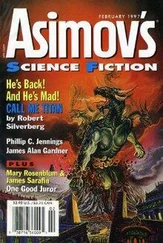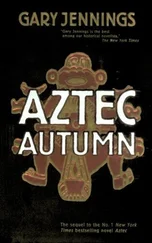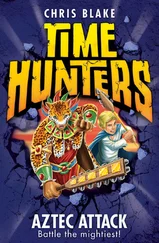Gary Jennings - Aztec
Здесь есть возможность читать онлайн «Gary Jennings - Aztec» весь текст электронной книги совершенно бесплатно (целиком полную версию без сокращений). В некоторых случаях можно слушать аудио, скачать через торрент в формате fb2 и присутствует краткое содержание. Жанр: Старинная литература, на английском языке. Описание произведения, (предисловие) а так же отзывы посетителей доступны на портале библиотеки ЛибКат.
- Название:Aztec
- Автор:
- Жанр:
- Год:неизвестен
- ISBN:нет данных
- Рейтинг книги:4 / 5. Голосов: 1
-
Избранное:Добавить в избранное
- Отзывы:
-
Ваша оценка:
- 80
- 1
- 2
- 3
- 4
- 5
Aztec: краткое содержание, описание и аннотация
Предлагаем к чтению аннотацию, описание, краткое содержание или предисловие (зависит от того, что написал сам автор книги «Aztec»). Если вы не нашли необходимую информацию о книге — напишите в комментариях, мы постараемся отыскать её.
"Anyone who reads, anyone who still lusts for adventure or that book you can't put down, will glory in Aztec."--Los Angeles Times
Aztec
Aztec
Aztec — читать онлайн бесплатно полную книгу (весь текст) целиком
Ниже представлен текст книги, разбитый по страницам. Система сохранения места последней прочитанной страницы, позволяет с удобством читать онлайн бесплатно книгу «Aztec», без необходимости каждый раз заново искать на чём Вы остановились. Поставьте закладку, и сможете в любой момент перейти на страницу, на которой закончили чтение.
Интервал:
Закладка:
The Lady of Tolan invited me to take chocolate in her chambers, and I went eagerly, with a question bubbling inside me. When I arrived, her son the Crown Prince was there, and I kept silent while they discussed minor matters concerning the palace management. But when there came a lull in their colloquy, I made bold to ask the question:
"You were born in Tolan, my lady, and that was once a Toltéca city. Are you then a Toltecatl?"
Both she and Black Flower looked surprised; then she smiled. "Anyone of Tolan, Head Nodder—anyone anywhere—would be proud to claim even a drop of Toltéca blood, but in honesty, ayya, I cannot. During all of living memory, Tolan has been part of the Tecpanéca territory, so I come of Tecpanéca stock—though I suspect our family may long ago have included an Otomitl or two, before that race was ousted."
I said in disappointment, "There is no trace of the Toltéca in Tolan?"
"In the people, who can say for certain? In the place, yes, there are the pyramids and stone terraces and vast walled courts. The pyramids have been stunted by erosion, and the terraces are all buckled and crazed, and the walls are fallen in places. But the exquisite patterns in which their stones were set are still discernible, and the low-relief carvings, and even fragmentary paintings here and there. The most impressive and least worn objects, though, are the many statues."
"Of the gods?" I asked.
"I do not think so, for they each have the same face. They are all of the same size and shape, sculptured simply and realistically, not in the convoluted style of today. They are cylindrical columns, as if once they supported some massive roof. But the columns are carved into the form of standing humans, if you can imagine humans more then three times as tall as any human known."
"Perhaps they are portraits of the giants who lived on earth after the gods," I suggested, remembering the monstrous thighbone of which Neltitica had told.
"No, I think they represent the Toltéca themselves, only portrayed much larger than life size. Their faces are not stern or brutal or haughty, as you would expect of gods or giants. They wear an expression of untroubled watchfulness. Many of the columns are toppled and scattered about the low ground, but others still stand on the heights, and they look out across the countryside as if patiently, tranquilly waiting."
"Waiting for what, do you suppose, my lady?"
"Perhaps for the Toltéca to come again."
It was Black Flower who answered, and he added a harsh laugh. "To emerge from wherever they have been lurking through all these sheaves of years. To come in might and fury, to conquer us interlopers, to reclaim these lands that were theirs."
"No, my son," said the First Lady. "They were never a warlike people, nor wanted to be, and that was their undoing. If they could ever come again, they would come in peace."
She sipped at her chocolate and made a face; it had gone flat. She took from the table at her side the beater of large and small wooden rings strung loose and jingling on a central stem, the whole instrument cunningly carved from a single stick of aromatic cedar. Putting it into her cup and holding the stem between her palms, she rubbed briskly to rotate the beater rings until the red liquid puffed up foamy and stiff again. After another sip, she licked the froth from her upper lip and said to me:
"Go sometime to the city of Teotihuacan, Head Nodder, and look at what is left of the wall paintings there. Only one of them shows a Toltecatl warrior, and he is merely playing at war. His spear has no blade, but a tuft of feathers at its point, and his arrows are tipped with óli gum, like those employed in teaching archery to boys."
"Yes, my lady, I have used such arrows in practicing the war games."
"From other murals, we can deduce that the Toltéca never gave human sacrifices to their gods, but only butterflies, flowers, quail, and such offerings. The Master Artisans were a peaceable people because their gods were gentle gods. One of them was that Quetzalcoatl still worshiped by all nations far and wide. And the Toltéca concept of that Feathered Serpent tells us much about them. Who but a wise and kindly people could have bequeathed to us a god that so harmoniously blends lordliness and lovingness? The most awesome but most graceful of all creatures, the snake, clad not in hard scales but in the soft and beautiful plumage of the quetzal tototl bird."
I said, "I was taught that the Feathered Serpent once really lived in these lands, and will someday come back again."
"Yes, Head Nodder, from what we can understand of the remains of Toltéca writing, Quetzalcoatl did indeed once live. He was a long-ago Uey-Tlatoani, or whatever the Toltéca called their rulers, and he must have been a good one. It is said that he himself devised the writing, the calendars, the star charts, the numbers we use today. It is even said that he left us the recipe for ahuacamoli and all the other moli sauces, though I am sure I cannot see Quetzalcoatl doing cook's work in a kitchen."
She smiled and shook her head, then was serious again. "It is said that during his reign the farmers' fields grew not just white cotton but cotton of all colors, as if already dyed, and that a single ear of maize was as much as a man could carry. It is said that there were no deserts in his time, but fruit and flowers growing everywhere in abundance, and the air was perfumed with all their mingled fragrances...."
I asked, "Is it possible that he could come again, my lady?"
"Well, according to the legends, Quetzalcoatl somehow unintentionally committed some sin so awful—or did something which so violated his own high standards of behavior—that he voluntarily abdicated his throne. He went to the shore of the eastern ocean and built a raft—of interwoven feathers, some say, or of intertwined live snakes. In his last words to the grieving Toltéca he vowed to return again someday. And he rowed away, and he vanished beyond the ocean's eastern horizon. Since then, the Feathered Serpent has become the one god recognized by every nation and every people known to us. But all the Toltéca have also disappeared since then, and Quetzalcóatl has yet to return."
"But he could have, he may have," I said. "The priests say that the gods often walk among us unrecognized."
"Like my Lord Father," said Black Flower, laughing. "But I believe the Feathered Serpent would be rather harder to overlook. The reappearance of such a distinctive god should certainly make a stir. Be assured, Head Nodder, if ever Quetzalcdatl comes again, with or without his retinue of Toltéca, we will know him."
I had left Xaltócan toward the close of the rainy season in the year Five Knife and, except for my frequent yearnings for the presence of Tzitzitlini, I had been so engrossed in my studies and my enjoyments of palace life that I had scarcely noticed the swift passing of time. I was frankly surprised when my schoolmate Prince Willow informed me that the day after tomorrow would be the first of the forthcoming nemontemtin, the five lifeless days. I had to count on my fingers to believe that I had been away from home for more than the round of a whole year, and that this one was coming to a close.
"All activities are suspended during the five hollow days," said the young prince. "So this year we will take the opportunity to pack and move the entire court to our Texcóco palace, to be ready to celebrate the month of Cuhhuitl Ehua there."
That was the first month of our solar year. Its name means The Tree Is Raised and refers to the many elaborate ceremonies during which the people of all nations were accustomed to beseech the rain god Tlaloc that the forthcoming summer's wet season would be an abundantly wet one.
"And you will want to be with your family for the occasion," Willow went on. "So I ask you to accept the loan of my personal acáli to carry you thither. I will send it again at the close of Cuahuitl Ehua, and you will rejoin the court at Texcóco."
Читать дальшеИнтервал:
Закладка:
Похожие книги на «Aztec»
Представляем Вашему вниманию похожие книги на «Aztec» списком для выбора. Мы отобрали схожую по названию и смыслу литературу в надежде предоставить читателям больше вариантов отыскать новые, интересные, ещё непрочитанные произведения.
Обсуждение, отзывы о книге «Aztec» и просто собственные мнения читателей. Оставьте ваши комментарии, напишите, что Вы думаете о произведении, его смысле или главных героях. Укажите что конкретно понравилось, а что нет, и почему Вы так считаете.











